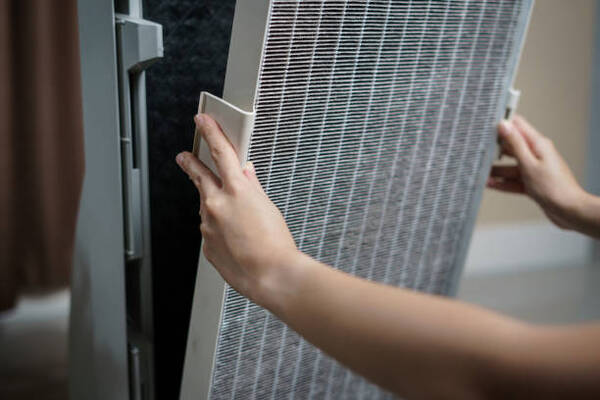- 1-905-452-8193
- Contact Us
- Member Login
- Get Listed Today
- 220,911 members

A HEPA air conditioner filter is a high-efficiency particulate air filter that can remove up to 99.97% of airborne particles from the air that passes through it. HEPA filters are often used in hospitals and other settings where clean air is critical, but they can also be set up by air conditioning Sydney experts in homes to improve indoor air quality.
There are many benefits of using a HEPA air conditioner filter, including improved indoor air quality, reduced allergens, and improved HVAC system efficiency. If you're considering installing a HEPA filter in your home, here are some significant perks to keep in mind.
Improved Air Quality
One of the main benefits of using a HEPA air conditioner filter is improved air quality. HEPA filters are designed to remove a wide range of airborne contaminants, including dust, pollen, pet dander, smoke, and mould spores. This can improve air quality for people with allergies or asthma, as well as for anyone who wants to breathe cleaner air.
Reduced Allergens
Another benefit of using a HEPA air conditioner filter is reduced allergens in the home. If you or someone in your family has allergies, reducing the number of allergens in the air can make a big difference in symptoms. A HEPA filter can help to reduce dust, pollen, and pet dander in the air, making it easier to breathe for allergy sufferers.
Improved HVAC System Efficiency
Using a HEPA air conditioner filter can also improve the efficiency of your HVAC system. When an HVAC system is not properly filtered, it can become clogged with dirt and debris, which can reduce its efficiency. A HEPA filter can help to keep your HVAC system clean, which can improve its efficiency and extend its lifespan.
Reduced Energy Bills
An efficient HVAC system can also lead to lower energy bills. When your HVAC system doesn't have to work as hard to maintain the same level of comfort, it uses less energy, which can save you money on your utility bills.
Fewer Repairs
In addition to reducing energy bills, using a HEPA air conditioner filter can also help to reduce the number of repairs needed for your HVAC system. A well-maintained HVAC system is less likely to break down, so you may not need to call for repairs as often.
Extended HVAC System Lifespan
A well-maintained HVAC system that uses a HEPA air conditioner filter can also last longer than one that doesn't. When you take good care of your HVAC system and keep it running smoothly, it can last for many years, saving you money in the long run.
Cleaner Air for Your Family
Perhaps the most important benefit of using a HEPA air conditioner filter is the cleaner air it can provide for your family. Indoor air can be full of allergens, dust, and other contaminants that can cause respiratory problems, so it's important to make sure the air in your home is as clean as possible. A HEPA filter can help to remove these contaminants from the air, providing you and your family with cleaner, healthier air to breathe.
Fewer Sick Days
If you or your family members suffer from allergies or asthma, using a HEPA air conditioner filter can also help to reduce the number of sick days you take. When the air in your home is free of allergens and other irritants, you're less likely to experience symptoms that can keep you from going to work or school.
Improved Sleep
If you have trouble sleeping, the quality of the air in your home may be to blame. Dust, pollen, and other allergens can cause respiratory problems that can make it difficult to breathe, which can lead to restless nights. A HEPA filter can help to remove these contaminants from the air, allowing you to breathe easier and sleep more soundly.
Fewer Headaches
Another common symptom of poor indoor air quality is headaches. If you find yourself suffering from headaches more often than usual, the air in your home may be to blame. A HEPA filter can help to remove irritants from the air, reducing the chances of headaches.
A HEPA air conditioner filter can do wonders for your home. Not only will it improve the quality of the air you breathe, but it can also help to reduce the amount of dust and allergens in your home. If you need more information about this, contact your local HVAC technician today.
